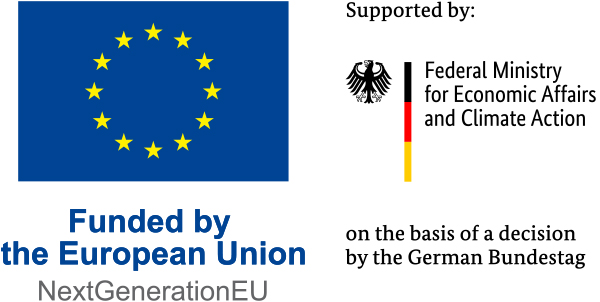
|
Decide4ECO uses data space for sustainable product developmentBy Martin Holland As part of the Manufacturing-X initiative to create trusted data spaces for manufacturing industry, the German Federal Ministry for Economic Affairs and Climate Action (BMWK) is providing funding to the Decide4ECO consortium project headed up by PROSTEP. The project will address the question of how products can be developed and manufactured in a more sustainable manner and how this sustainability can be evaluated. Integration in data ecosystems plays a key role in this context. 
A large proportion of the resources that a product consumes over the course of its lifetime is determined during product development. And that is exactly where Decide4ECO comes into play. The aim of the project with a total investment of 7.3 million euros is to develop methods and tools that support decision-making early in the product development process with a view to sustainable production and operation. The project will make it possible to proactively evaluate the relevant sustainability requirements in the context of the entire product lifecycle and the entire value chain. It is therefore also necessary that the data that provides the basis for analyzing sustainability be collected across the entire production and supply chain. It is intended that the data relevant to sustainability be exchanged and communicated using data ecosystems like Manufacturing-X and Catena-X. Within the framework of the project, the partners want to develop interfaces that make the data available to all the parties involved via the shared data space. It is also intended that the solutions for evaluating sustainability based on this be supplemented by AI-based impact analyses with the aim of making it possible to compare product alternatives in terms of sustainability. "With Decide4ECO, the BMWK is funding a project that focuses on the use of data ecosystems as early as during the product development phase," says Ernst Stöckl-Pukall, Head of Division, Digitalization, Industrie 4.0 at the BMWK. "The aim of the project is to provide support to companies and their supply chains in the context of developing and manufacturing sustainable products. This makes the project a key component in the cross-industry development and scaling of Manufacturing-X. We expect it to provide important impetus for ecological transformation into a circular economy." In addition to PROSTEP, the Decide4ECO consortium includes the Chair of Product Design at the HNI at Paderborn University, the IT solution providers CONTACT Software and Nexpirit, the industrial companies BOS, Sonova and Hadi-Plast, as well as Grant Thornton and Brainport Industries as associated partners. The HNI will focus on method development and information modeling. The three IT solution providers will map the different use cases in a demonstrator that will then be implemented and tested by the industrial partners. The legal team from Grant Thornton will ensure compliance with the Data Act and Data Governance Act and provide advice on the legal structure and legal framework of data ecosystems. All the partners will work together on the transfer and dissemination of the project results. In the Netherlands, this role will be performed by Brainport Industries. As part of the project, PROSTEP will be developing an Eclipse Data Space Connector (EDC) for its tried-and-tested PLM integration platform OpenPDM to enable shared use of the Asset Administration Shell (AAS). The new connector will make it possible to use OpenPDM to integrate data from connected PLM, ERP and ALM systems in Manufacturing-X and other data ecosystems, such as Catena-X. This means that the information needed to evaluate the sustainability of a product can be made available and used by all partners in a data ecosystem. 
We will be developing a solution that enriches the digital thread with sustainability-related aspects to ensure that due consideration is given to the impact of these aspects. PROSTEP will provide the sustainability information required for decision-making in clearly organized dashboards in OpenCLM. The close link between OpenPDM and OpenCLM means that decisions are always based on up-to-date information, and that this information can be used for the AI-based derivation of product passports and the development of predictive AI-based impact analyses. Once the project has been brought to a close, we will integrate this functionality in our existing digital thread solution OpenCLM as part of the industrialization process. We also want to use the experience we gain in the project to expand the range of consulting services we provide on the sustainable product development using data ecosystems. The aim is to use digital technologies to make it possible for our customers to develop products that are sustainable and thus facilitate ecological transformation. We want to improve not only their decision-making skills but also verifiability in the context of sustainability. |
|
| © PROSTEP AG | ALL RIGHTS RESERVED | IMPRINT | PRIVACY STATEMENT | YOU CAN UNSUBSCRIBE TO THE NEWSLETTER HERE. |

